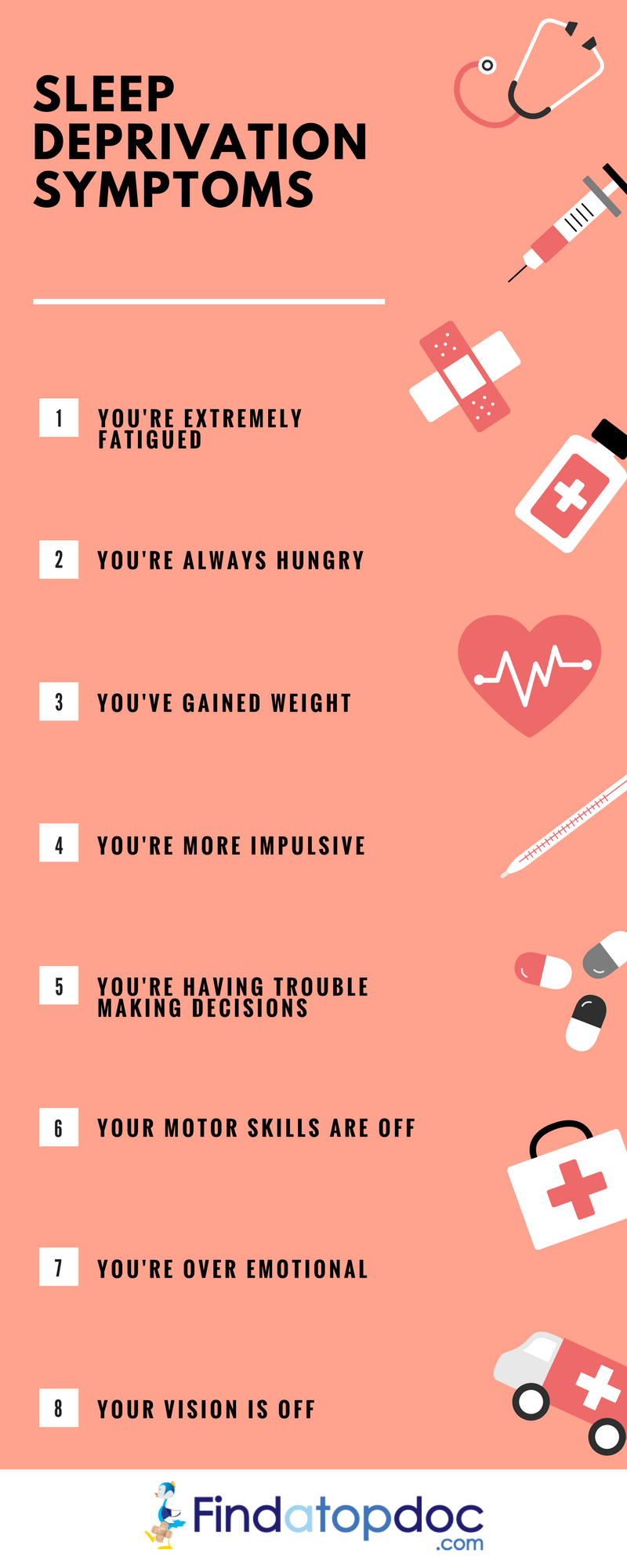The loss of sleep is a common problem in modern society, affecting many individuals at some point in their lives.
Sleep deprivation occurs when an individual gets less sleep than they should. People vary in how little sleep is needed to be considered sleep-deprived. Some people such as older adults seem to be more resistant to the effects of sleep deprivation, while others, especially children and young adults, are more vulnerable. Although occasional sleep interruptions are generally a nuisance, ongoing lack of sleep can lead to excessive daytime sleepiness, emotional difficulties, obesity and a lowered perception of quality of life.

Source
Causes of Sleep Deprivation
What usually causes
sleep deprivation in adults, and how do these causes differ from those in teens or even children? Research suggests that sleep deficiency is typically due to the following factors:
- A disorder that disrupts sleep, whether a thyroid disorder, dealing with pain, or something like acid reflux or sleep apnea. Snoring can also disturb sleep.
- A demanding, busy schedule.
- High amounts of stress.
- Effects of certain medications or stimulants.
Symptoms
The main symptom of ongoing
sleep loss is excessive daytime sleepiness, but other symptoms include:
- yawning
- moodiness
- fatigue
- irritability
- depressed mood
- forgetfulness
- lack of motivation
- clumsiness
- reduced sex drive
Treatment
Treatment is only required when a person physically cannot get to sleep, due to either physical or psychological difficulties. A therapist or sleep specialist will be able to offer guidance and coping techniques for reaching a restful state and sleeping. There are two main avenues of treatment for sleep deprivation: Behavioral and cognitive measures and medications.
